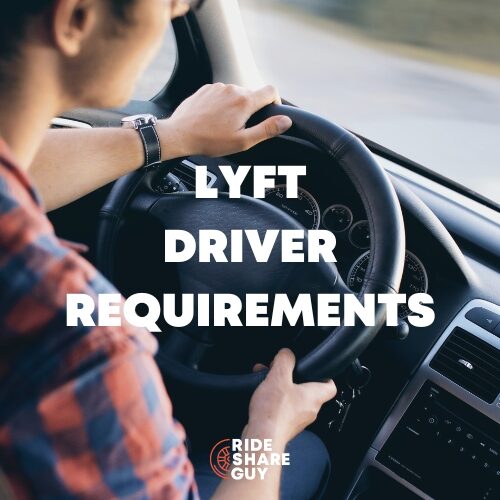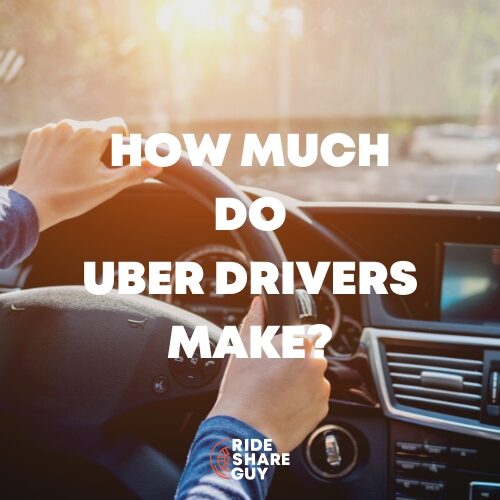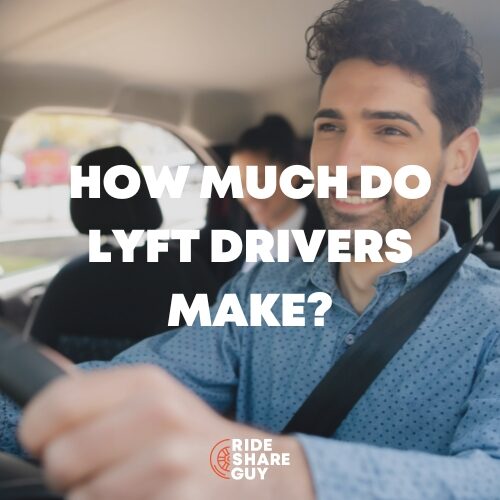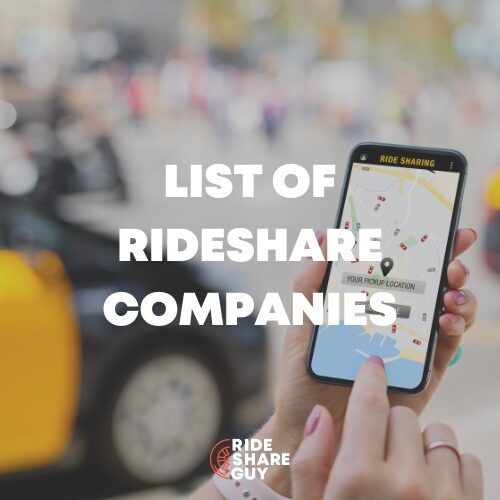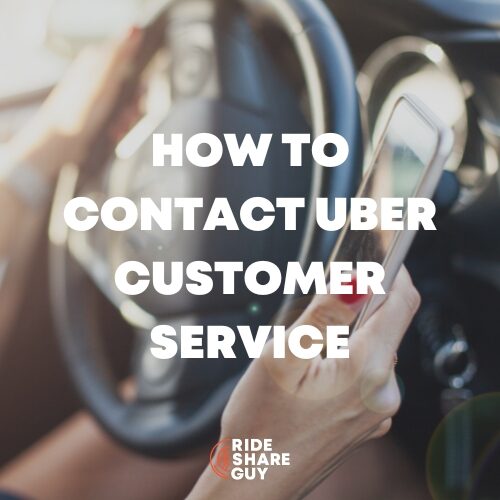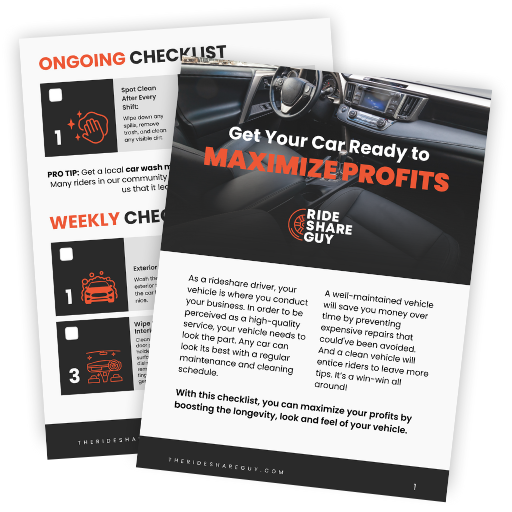Over the years, The Rideshare Guy team has covered rideshare and other gig worker lawsuits. These things take a lot of time to work through the system, from figuring out which drivers were impacted, to making arguments, and generally winding their way through the system to eventual driver payouts.
Recently, we learned of a new settlement – the Tidrick settlement. Below, senior RSG contributor Paula Gibbins outlines what to know about this case – especially if you are part of it!
Drivers took to Reddit to see if the messages they were receiving were a scam or to see if the payout was worth their while to accept.
Seattle Paid Sick Time Settlement
One settlement for drivers in the Seattle area wrapped up in June 2021. It was ruled that $3.4 million was owed to over 15,000 Seattle Uber drivers because it was determined Uber violated Seattle’s Paid Sick and Safe Time (PSST) for Gig Workers Ordinance.
The settlement was made between Uber and the Office of Labor Standards (OLS) in the largest settlement agreement in OLS’s history. The PSST ordinance passed last summer but several drivers were unable to access their accounts in order to claim their sick days. Others found that their sick days were not totalling correctly on the app.
In a recent article, written by Luke Schaefer for South Seattle Emerald, “Payment for drivers will vary depending on how much each driver worked — however, drivers are entitled to one day of paid sick leave for every 30 days worked, and over 15,084 drivers will receive advance payment for an unused sick day. Another 2,329 drivers will receive additional pay from the settlement, including pay from back wages, interest, liquidated damages, and civil penalties.”
This settlement is affecting Seattle area drivers alone and is pertinent to those who have used the Uber platform and not received their sick pay in accordance with the PSST ordinance.
Eligible drivers will be paid within 30 days by direct deposit or by check, under the terms of the settlement. Below is a screenshot of what you will see for payout:
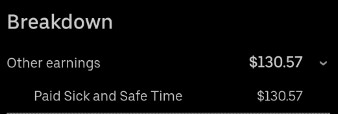 Tidrick Settlement Details
Tidrick Settlement Details
Tidrick is the law firm that is handling the settlement case, not the claimant in the class action lawsuit. It’s for California drivers and the lawsuit is geared toward worker misclassification, which has been the subject of many lawsuits in recent years.
It appears to be in the earliest stages at the moment. I was unable to locate any court documents concerning this settlement. When I called the 800 number provided by Tidrick in the communications that people posted on Reddit, there wasn’t much information provided.
One Reddit poster stated, “I received it as well. Been waiting for well over a year and a half. I have certified the claim and am moving forward as I’m certainly not going to start this process over again with another firm and am more than satisfied with the offer. I certainly hope enough people accept the offer so it goes through.”
I was able to determine that the payment would only happen if 92% of the people who received an email from info@LyftTidrickSettlement.com accepted the settlement payment by filling out the information asked of them.
They were to go to the link they were provided and input a unique user ID and password provided within the communication.
Once people signed into the link, it seems they were given a dollar amount they would receive if enough people accepted the offer. The only amount shown on Reddit was $385.32. It’s unclear how much the total settlement is and how much on average drivers would receive.
According to the pre-recorded message when I called the provided phone number, only the people who received the email communication are eligible for the settlement. If you did not receive the email, you are not eligible, and therefore cannot opt into this class action suit.
As far as the time frame, the phone message used the words “promptly” and “in a timely manner” to describe when people need to accept their settlements in order for this to process.
And as a reminder, payouts would not happen until 92% of those sent the communication respond that they accept the settlement.
Information Provided by Tidrick
In the communications sent to these drivers, Tidrick did provide a link to www.seekjustice.com which provides answers to frequently asked questions about lawsuits against rideshare and food delivery app companies.
These questions and answers are more or less for any current or future lawsuits you want to pursue against rideshare companies. It’s not specific to the Lyft settlement case in question.
Previous Settlements – O’Connor vs Uber and Yucesoy vs Uber
Uber and Lyft have been in the news a lot over the past few years with the focus being worker misclassification. There are a few lawsuits that focus on whether or not these rideshare companies have been misclassifying their drivers as independent contractors when really they should be considered employees.
Two of these settlements are starting to pay out; namely O’Connor v. Uber and Yucesoy v. Uber. These two class action lawsuits are for drivers in California and Massachusetts who used the app as drivers between August 16, 2009 and February 28, 2019. It is only available to drivers who are not bound by Uber’s arbitration clause.
Both lawsuits have reached a settlement and as part of that, Uber has agreed to pay $20,000,000 and will change certain policies that affect drivers as part of the settlement agreement. It does not reclassify drivers as employees and the amount each driver will receive is based on miles driven while using the Uber app with a passenger on board.
 What Class Action Lawsuit Settlements Are Paying Out?: O’Connor and Yucesoy
What Class Action Lawsuit Settlements Are Paying Out?: O’Connor and Yucesoy
The lawsuit of Yucesoy v. Uber was filed in August of 2015. The lawsuit of O’Connor v. Uber was filed in August of 2013.
According to UberLitigation.com:
“The central issue in both of these lawsuits is whether Uber has misclassified drivers as independent contractors, as opposed to its employees.
In the O’Connor lawsuit, the plaintiffs alleged that because drivers are employees, certain of Uber’s conduct and policies toward drivers in California violated California labor law. Specifically, the plaintiffs claimed Uber failed to reimburse drivers for vehicle-related and phone expenses and failed to pass along to drivers the entire portion of the fare that allegedly represents a tip.
In the Yucesoy lawsuit, the plaintiffs alleged that because drivers are employees, certain of Uber’s conduct and policies toward drivers in Massachusetts violated Massachusetts labor law. Specifically, the plaintiffs claimed Uber unlawfully classified drivers as independent contractors, failed to reimburse drivers for their expenses, failed to pass along to drivers the entire portion of the fare that allegedly represents a tip, and interfered with drivers’ relationships with passengers.
Uber denies any wrongdoing and liability and contends that it correctly classified drivers as independent contractors and complied at all times with applicable California and Massachusetts law.”
At this point, it’s too late for drivers to opt into these settlements, but those who did decide to participate are starting to receive their checks.
According to a federal notice about this lawsuit settlement,
“Assuming a 50% claims rate, the average net settlement share per claiming Settlement Class Member will be $2,206.
Assuming a 100% claims rate, drivers who drove 0-1,000 miles may receive more than $180, whereas drivers who drove 10,000 miles may receive almost $2,000.
Drivers who drove 100,000 miles may receive more than $18,000. If there is a 50% claims rate, these estimates would double for drivers who submit claims.”
The changes in policy that Uber has agreed to as part of this settlement is:
- Low acceptance rates are not grounds for account deactivation.
- Uber will maintain its comprehensive Policy online in an easily-accessible and easily-understood format.
- Uber will provide advance warning before a Driver’s user account is deactivated for reasons other than safety issues, physical altercation discrimination, fraud, sexual misconduct, harassment, or illegal conduct (each, an “Excluded Matter”).
- Uber will provide the Driver with an explanation for its decision to deactivate the account.
Drivers will want to determine if the checks have had taxes taken out or if this is something they’ll need to set aside for the end of the year so there are no surprises. This is especially important if you’re a driver who is receiving thousands of dollars in the settlement.
What Happens if Drivers Accept or Reject the Settlement
There are reasons why a driver would accept or reject a settlement. It varies by settlement and by driver.
One reason may be because, by law, the driver cannot participate due to the arbitration agreement that many have signed with Uber and/or Lyft. If you have not opted out of arbitration, you’re likely unable to participate in most of these class action lawsuits because they are really mass arbitration settlements.
According to attorney Mark Potter, of Potter Handy, LLP, a law firm that RSG contributor Jay Cradeur has worked with,
“There’s no determination of fairness, no determination of proper attorneys’ fees and costs, and no opportunity for you to formally object to the settlement. Instead, you are offered the settlement on a take-it-or-leave-it basis.
Because the negotiations occur behind closed doors, companies like Uber and Lyft to cut deals that leave you with pennies on the dollar. In fact, it’s not uncommon for these settlements to settle for as low as $0.11 per mile driven in phase 3 only.
Keep in mind that the current rate for reimbursement of driving expenses is $0.58 per mile driven for phases 1, 2, and 3, and that represents only one type of recovery available to most drivers.”
Potter is not trying to say that all mass arbitration settlements are bad. Plus, even if the amount seems low, it could be a good deal for a specific driver at a specific time. As they say, something is better than nothing, right?
If it’s not right for you, you can just say no to the settlement and move on. If you’re not sure what’s right for you, call an attorney. You can reach out to Mark Potter here.
If Drivers Accept the Settlement
If drivers accepted this settlement or any other settlement like it, they are not able to participate in any other settlement that addresses the same issues.
According to UberLitigation.com,
“You can’t sue, continue to sue, or be part of any other lawsuit against Uber about the legal issues addressed in these lawsuits. It also means that all of the Court’s orders will apply to you and legally bind you.”
If you are in the process of suing Uber under another lawsuit, you have to decide which to pursue. If you want to exclude yourself from a settlement, you’ll need to submit a request for exclusion before the deadline to do so for the settlement in question.
In the case of the O’Connor v. Uber and Yucesoy v. Uber settlements, this deadline has passed and you are no longer able to exclude yourself.
If you accept the settlement, you’ll be able to receive a payout from the settlement based on whatever criteria is involved.
If Drivers Don’t Accept the Settlement
If you don’t accept the settlement, you have the right to sue Uber as part of another settlement for the same issues. You have the potential to get a bigger payout, or you could be settling for a lower payout since you’ll be trading a sure thing for the unknown.
The risk is something you’ll have to weigh for yourself. If you’re expecting, say, $50, you’ll have to decide for yourself if that’s worth it to settle the issue, or if you think you’ll be able to get more later on.
What Drivers Are Saying
Many drivers on the driver-centric forum UberPeople have stated that they called the hotline and were told their checks were mailed on July 22, 2020.
As of July 24, people started posting that they’d received their checks:

“I was told $5,579. Less than I was expecting but more than I have.”

“I drove 36k miles and got $8k check. Mine comes out at $0.22 a mile. It was sent out on the 22nd! Unless my estimate of 36k miles driven is wrong. Oh well hopefully we get another check!”

“Received $9200, expected 12,000.. I have all the records of on line miles. Remember that even after the deadline passed the Atty continued to send out invitations for drivers to sign up, as late as June 2020..”

“Mailed 7/23. It’s for around $1900, but considering that I was almost Lyft-only for the 2.5 years I lived in LA, that’s understandable.”
We heard from other drivers that they are being quoted various amounts of per mile rates. One driver said he was offered $.11 a mile, another was offered 20 cents per mile, and yet another driver emailed us that he was expecting 37 cents per mile.
It seems like drivers are receiving roughly around 20 cents per mile, but it’s hard to verify given confidentiality settlements.
Additional Lawsuits to Know About
In addition to the lawsuits above, there are a few additional settlements to keep an eye on.
Prop 22 lawsuit
In January 2021, a lawsuit was filed with California courts to overturn Proposition 22 citing that the proposition “is unconstitutional because it limits the power of the Legislature to grant workers the right to organize and excludes drivers from being eligible for workers’ compensation,” according to an article published by the Associated Press.
In order for this lawsuit to gain traction, it will need to be accepted into the higher courts of California. The article states that with propositions that are voted on by the general public, it often doesn’t get overturned in the courts.
On January 27, 2021, Tyler Sonnemaker from Business Insider wrote an article about a federal court that allowed a group of about 4,800 California drivers to sue Uber for lack of benefits prior to the passing of Prop 22. The suit alleges that these drivers were denied expense reimbursements and itemized pay statements.
The basis for the lawsuit is that Uber and Lyft were not complying with the newly enacted AB 5 law that would arguably classify drivers as employees as opposed to independent contractors.
It’s just in the beginning stages, but it would be one to keep an eye on if you drive for Uber or Lyft in California. Also, keep your eye out for any others that crop up in the wake of the passing of Prop 22.
Francis, Mailman and Soumilas — Former Uber Black/SUV Drivers
The case is about Uber’s refusal to honor its representations that particular vehicles could be used to drive for the more-selective Uber BlackSUV platform, causing drivers to lose income.
According to the article about the case, “The lawsuit alleges that in September 2019, Uber abruptly changed its vehicle eligibility requirements for Uber BlackSUV, removing multiple vehicles from its approved list and therefore cutting off all drivers who were using those vehicles to earn an expected rate.”
Basically, if you bought an Uber Black/SUV car to drive specifically for Uber Black/SUV and then Uber changed the rules to say your car no longer qualified, this isn’t fair and Francis, Mailman & Soumilas are filing a class-action lawsuit against this.
They are interested in talking to as many people as possible who have been affected by this, and you can go to their website to apply and learn more.
Summary
Class action lawsuits tend to take a while to work through the system. It can even take years from the initial reaching out for those interested in joining to the final payout.
For the Tidrick lawsuit, drivers are in the position to make a decision right now. Will you accept the settlement offer or pass, hoping for a bigger payout from another lawsuit down the road?
When considering lawsuits, keep in mind that some are very specific to your location, and when you were driving for the apps in question. It’s a good idea to double-check that you qualify before getting your hopes up.
Some lawsuits you need to opt in to or opt-out of depending on the situation and depending on if you want to participate. Make sure to do your research – or reach out to us here at The Rideshare Guy if you have questions!
If you have already received a check from a settlement, keep in mind that you can’t pursue a lawsuit for the same reasons against the same company. That would basically be double-dipping, which is not allowed.
Drivers, have you been a part of any Uber, Lyft or other gig worker lawsuit? Let us know in the comments below.
-Paula @ RSG
